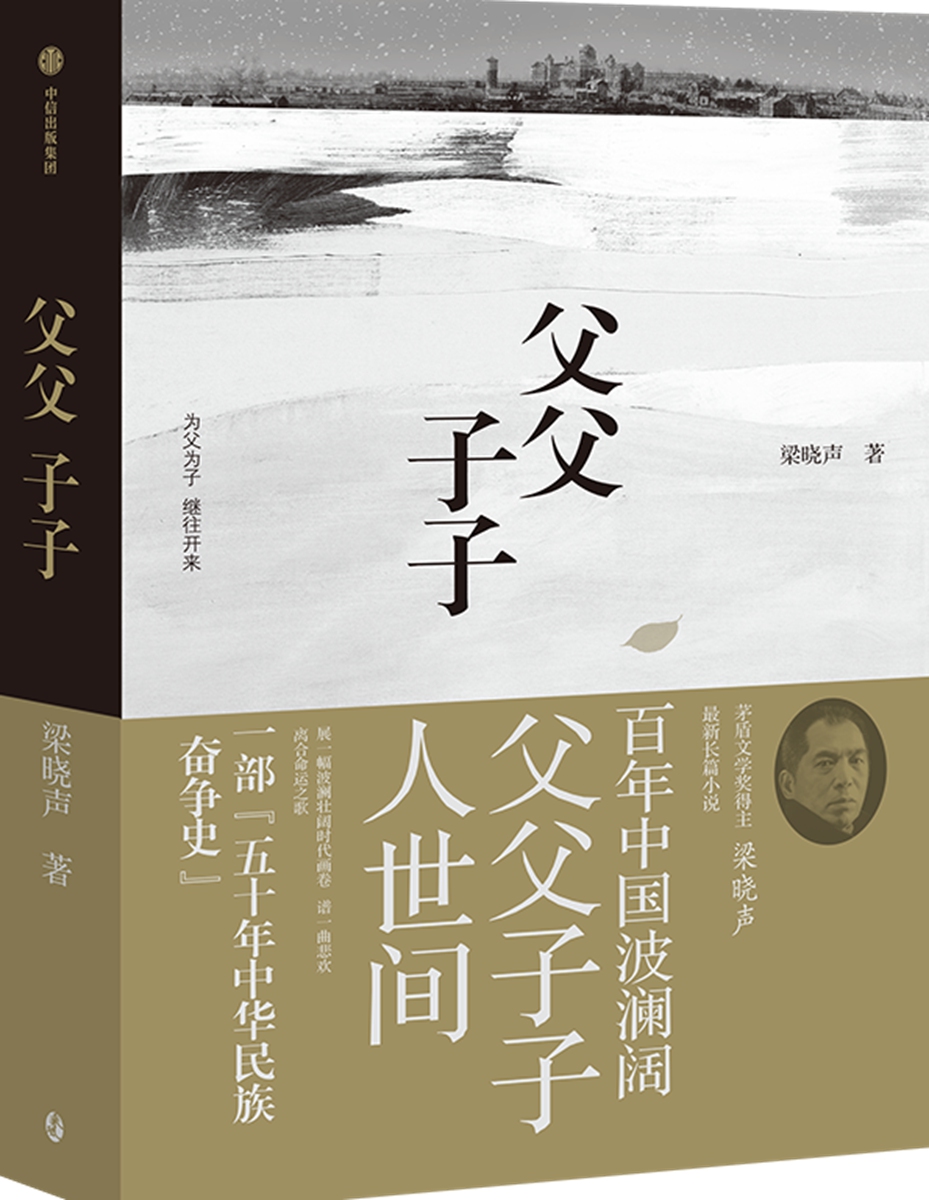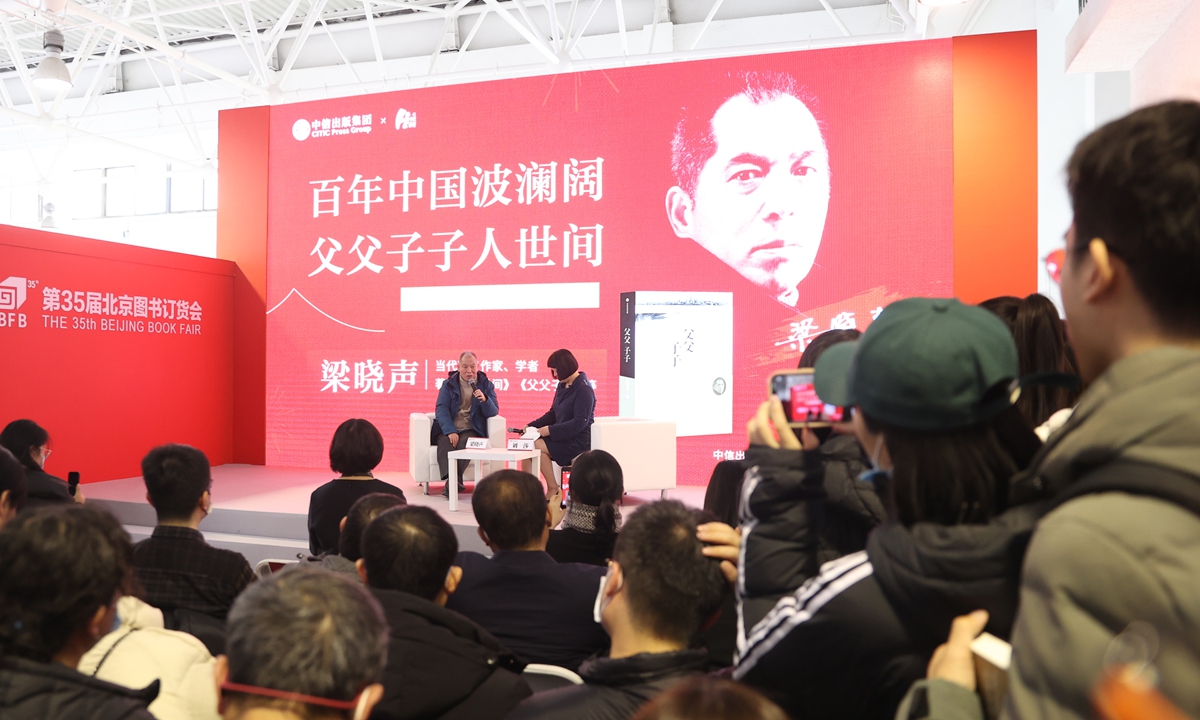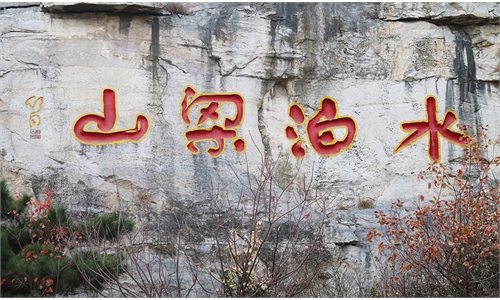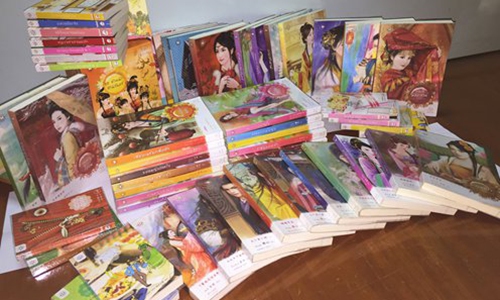
Title: Fu Fu Zi Zi
Author: Liang Xiaosheng
Publisher: CITIC Press Group
Year of publication: 2022
Publishing his latest novel, Fu Fu Zi Zi (lit: Fathers and Sons), Chinese novelist Liang Xiaosheng told the Global Times that this work, which depicts four families over a span of 50 years, may be his last book.
As seen in his acclaimed 2017 novel A Lifelong Journey, Liang's storytelling style often focuses the faith ordinary people have in China no matter where, or in what age, they live. The new book also aligns to this theme, yet it carries a denser "historical sense" that reflects the vicissitudes of Chinese history since the 1930s.
50 years of story
In Fu Fu Zi Zi, Liang, born in September 1949, writes about the changing fates of four families, with the two main ones being the Gao family in Harbin, Northeast China's Heilongjiang Province, and the Chinese Zhao family that lives in New York, the US.
Spanning the 1930s to the 1980s, four generations are covered in Liang's epic. Despite living in different places, they live through shared historical moments that made China what it is today such as the War of Resistance against Japanese Aggression (1931-45), the War of Liberation (1946-49) and also the reclamation that was carried out at the great northern wilderness, which is known as Beidahuang in Chinese, during the 1950s to provide local people with life-saving harvests.
Gao Kun, the book's lead character, and his father Gao Pengju, a local Harbin businessman, are one of the father-and-son pairs that Liang focuses on in his book. He told the Global Times that these pairs deliver a "sense of patriotism that is passed on from generation to generation."
"I think it is time to carry on the legacy - the passion for home and country - of our predecessors. So, it is natural to combine such feelings and my respect to the faithful and brave Chinese people by writing this novel," Liang said.
Notwithstanding the novel was ended with the four families reunited in 1984, Liang has for the first time to have designed a cross-country storyline that scrutinizes the Chinese community in New York's Chinatown during the War of Resistance against Japanese Aggression.

Chinese writer Liang Xiaosheng talks about his new book Fu Fu Zi Zi with readers at an event in Beijing. Photo: VCG
Lead character Gao Kun is at the narrative's center. He lives a rather tragic life, witnessing his father's death at the hands of Japanese invaders, who also kill his brother-in-law.
"I present a historical fragment through this character; to use the pain of an individual as a reflection of the pain of the whole nation," Liang said.
The writer also said that he had to "imagine a Chinatown community" to attempt to capture Chinese New Yorkers' inner feelings after they learn about Japanese troops' barbarian invasion.
"What do they think of the relationship between China and themselves? I could hardly find any clues in materials," Liang noted, adding that he could not see any Chinese staying ignorant of the situation even after becoming a US citizen.
As a Harbin local, the sentiments Liang had for the city informed his writing. The Chronicle of Harbin City gave birth to Fu Fu Zi Zi.
The writer was able to connect himself to the "praised heroic spirits of Harbin people" by looking into local stories documented in the chronicle since the late Qing Dynasty (1644-1911).
'No regrets'
Calling Liang a veteran of Chinese contemporary literature is no exaggeration. Back in 2019, he won the 10th Mao Dun Literature Award with A Lifelong Journey.
Covering three volumes, the realistic epic invites readers to examine China's 50 years of social changes, including the pivotal milestone of the country's reform and opening-up through the leading character Zhou Bingkun's life stories. In 2022, the novel was adapted into a TV series, becoming one of the highest-rated shows with a score of 8.4/10 on Chinese rating platform Douban.
Liang's "people-oriented" writing style seems to still appeal to readers, especially young people. This has somehow brought the writer full circle as many of his early works were dedicated to zhiqing, or educated youth. It describes a generation of young Chinese from 1968 to 1978 who volunteered to head to remote areas to support the country's development.
Once a zhiqing himself, Liang told the Global Times that while he has depicted the image of "good Chinese youth" in several his novels, it wasn't until Fu Fu Zi Zi that he started to retrospect on his own life journey.
"I have been famous since I was in my 30s, so I have always had a halo around me. This can easily misguide someone to believe he is the greatest," Liang said, emphasizing that he will remain grounded and faithful in his writer's journey.
Following the successful TV adaption on A Lifelong Journey, show director Li Lu has plans to bring Liang's Fu Fu Zi Zi to TV screens again.
"With this book under my belt, I have no more regrets as a Chinese writer!" Liang writes in the afterword of the novel.



